Cognitive Development Normal Geometry Worksheets for Ages 3-4
7 filtered results
-
From - To
Unlock your child's potential with our "Cognitive Development Normal Geometry Worksheets for Ages 3-4". Designed specifically for young learners, these worksheets encourage cognitive skills through engaging geometric shapes activities. Each printable resource features fun puzzles and colorful images that help children identify shapes, understand spatial relationships, and develop problem-solving abilities. Ideal for parents and educators, these worksheets foster a love for learning while building a strong foundation in geometry. Enhance your child's cognitive development in a playful and interactive way—perfect for early childhood education at home or in the classroom. Download now to support your child’s journey in mathematics!
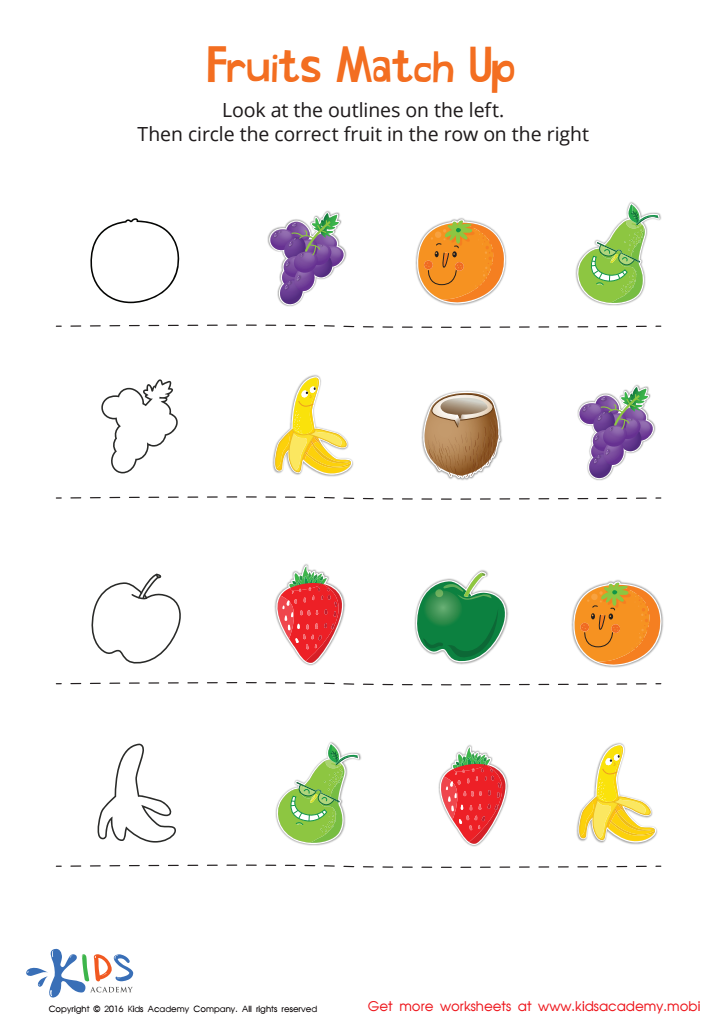

Fruits Match Up Worksheet
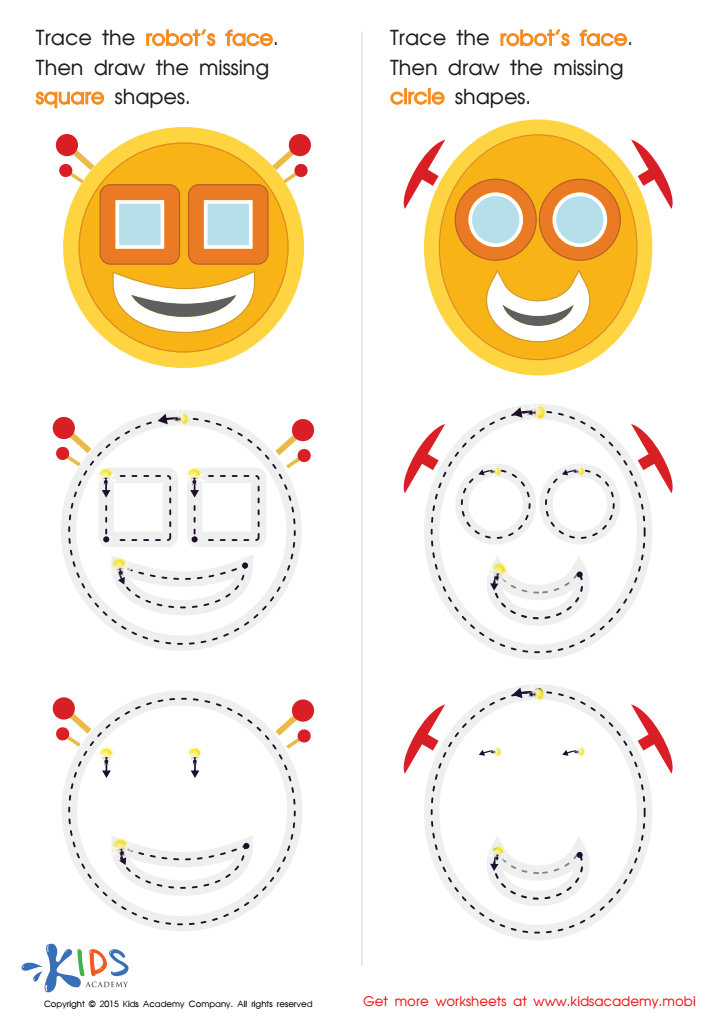

Practicing to Draw Circles And Squares Printable
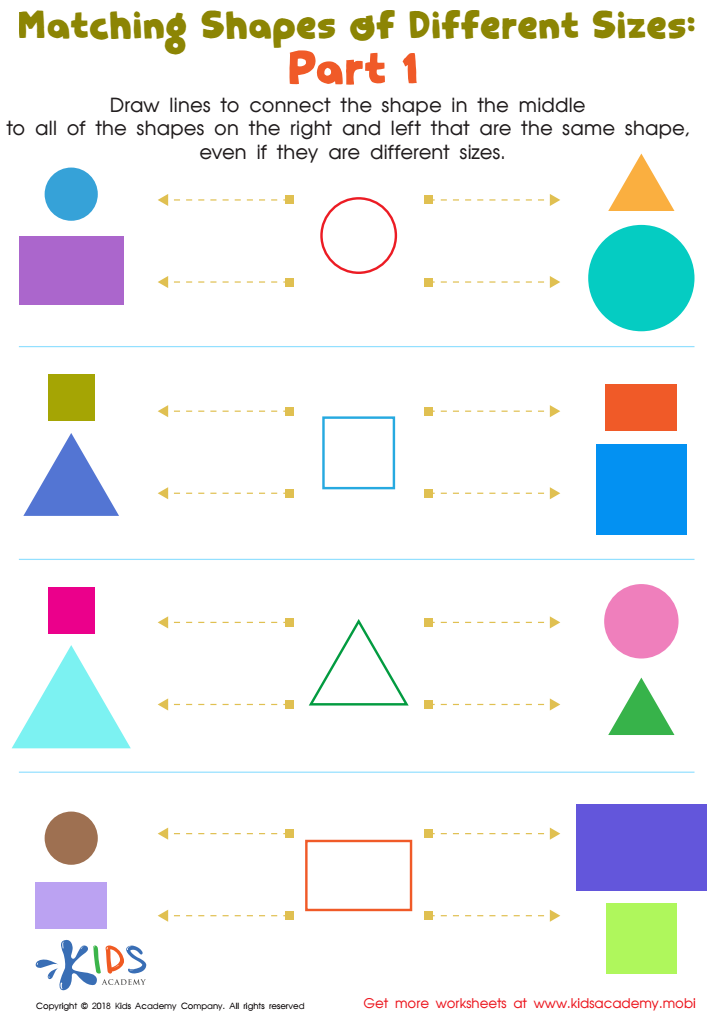

Geometry: part 1 Worksheet


Preschool Geometry Match Up Worksheet
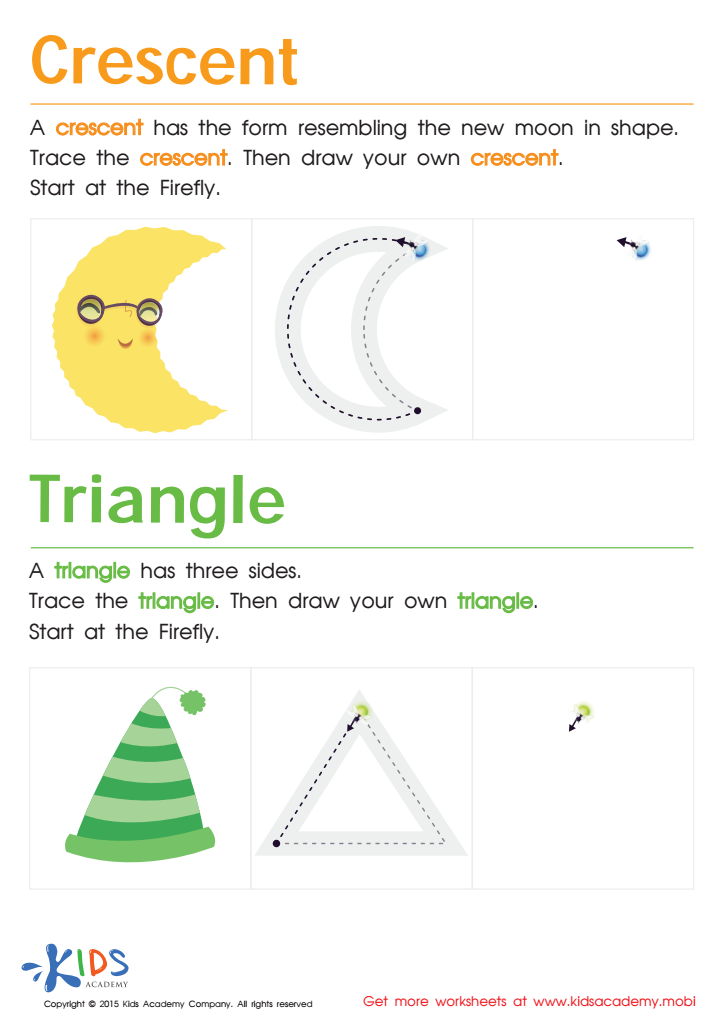

Learning to Draw Crescents And Triangles Worksheet
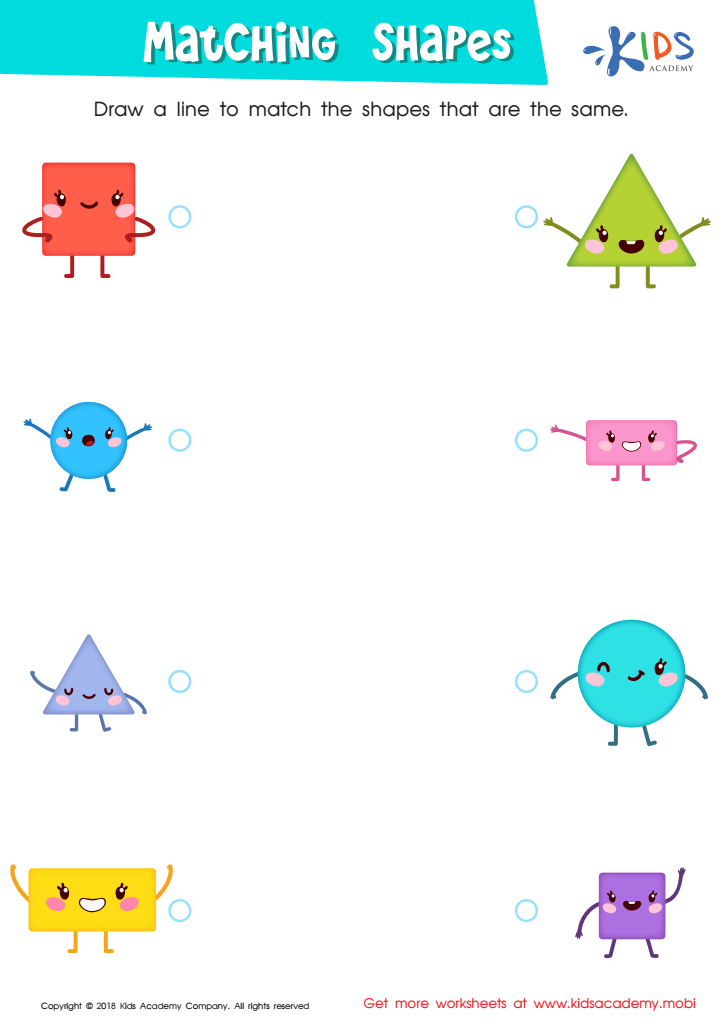

Matching Shapes Worksheet
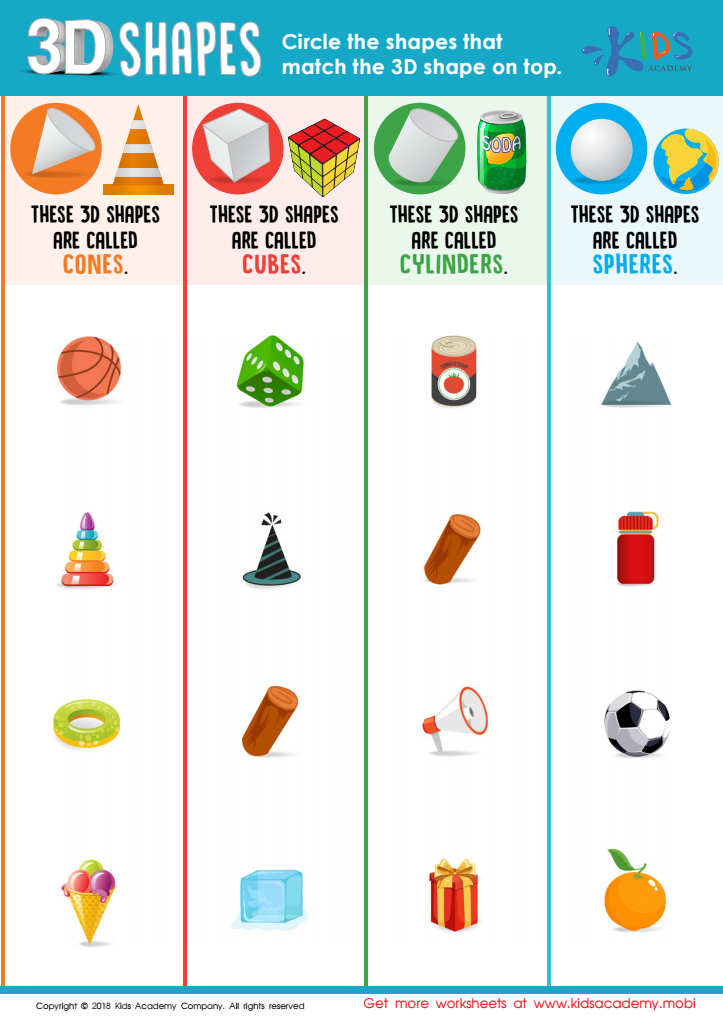

3D Shapes Worksheet
Parents and teachers should prioritize cognitive development in geometry for children ages 3-4 because it lays the foundation for numerous essential skills. At this stage, young learners are naturally curious and active, making it an ideal time to introduce geometric concepts. Engaging children in identifying and manipulating shapes helps strengthen their spatial awareness, which is critical for problem-solving and everyday tasks.
Incorporating geometry into play enhances children's critical thinking skills, nurtures creativity, and supports logical reasoning. Recognizing shapes and understanding their properties aids in the development of early math skills. Additionally, these activities promote fine motor skills as children cut, paste, and draw different shapes.
Moreover, understanding basic geometric concepts can enrich children's language skills, as they learn to describe shapes and their relationships. This vocabulary building contributes to their overall communication abilities.
Lastly, early exposure to geometry can spark a long-lasting interest in math and science, which are vital fields in both education and career paths. By emphasizing cognitive development through geometry, parents and teachers provide children with the tools they need to navigate the world around them, fostering a love of learning that will benefit them throughout their lives.
 Assign to My Students
Assign to My Students


























